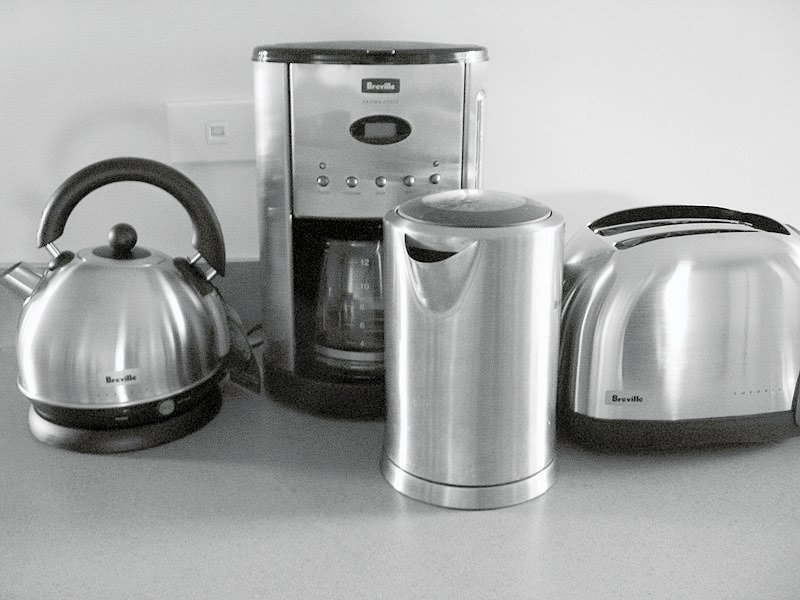Health Essentials
Dancing with the rain

“Once AGAIN, torrential rains have hit the Accra Metropolis, creating heavy floods in various parts that have caused great havoc to lives and property. The team of ministers, the Mayor of Accra, officials of the National Disaster Management Organisation (NADMO) and the security agencies are going round to ascertain the impact” –GNA, 2009


I have highlighted “ONCE AGAIN” for obvious reasons. The scenario above is almost a ritual. As soon as the sun shines consistently, and the land dries up, you can be sure that we will lay down our pens, take off our boots, jump into our budget crippling SUVs, return to discussing “more pressing issues” and pretend it was all just a dream. How many more warnings do we need as a nation before we sit up? Maybe 70 X 7! If God was human he definitely would have been fed up with us by now and that will mean we would have been left to our fate. We are all to blame. NO EXCEPTIONS!
Even die-hard optimists are beginning to show signs of fatigue. I haven’t written about floods in Accra in a while now and I was inspired to reproduce this after reading Emmanuel J. K. Arthur’s Accra is “celebrating” its Annual Flooding Festival and I quote him “traditionally the Festival is celebrated by Accra residents who live in low-lying areas, also known as Flood Prone Areas. It is “celebrated” from March and climaxed in June every year since 1960s. During the period, the sitting Works and Housing Minister and the Regional Minister are joined by District and Municipal Assembly Heads to tour “celebrating areas” to reiterate the commitment of Government to end the perennial flooding…………This year’s “celebration” is on the theme Blaming all for our collective actions.” What else can I add to this masterpiece? We seem to enjoy this and have no plan to “dig” ourselves out of this hole. Maybe we should get rid of a number of our army of ministers and appoint a Flood Prevention Minister.
I hate to have to do this again but once started at least let us remind ourselves of some of the challenges floods cause to our fragile economy.
CAUSES OF FLOODS
- Urbanisation
- Migration of people from the rural areas to the large cities such as Accra and Kumasi has led to an explosion in their population. We have outstripped the already poorly planned facilities available
- The urban poor in the capital of Accra are especially (but everyone feels the pinch) vulnerable to the effects of flooding due to poorly and often illegally built structures, (many across the paths of water bodies) overcrowded living conditions, and inadequate sewage and drainage systems that are often clogged with refuse. Scarcity of land has also forced many people to occupy low lying areas and are prone to floods
- Decreased Capacity of Drainage Channels
- our drains are choked with refuse or are silted up as are our rivers and streams
- Incapacity of Drains and Culverts
- Drains are absent in many places, unfortunately in privileged areas where we may find some semblance of drains, their capacity is woefully inadequate. In some areas open gutters compete for honours as to which of them is able to reclaim the sand/silt skillfully dug out and lined on their edges. Really do we expect nature to find a way of leaving them along the edges of the drains till the rapture? How ridiculously NEGLIGENT can we be as a people. Is someone being paid to take care of these? They had better come out clearly to say they are and have been on STRIKE since they were appointed instead of claiming to be at work and doing absolutely nothing.
- Impact of Climate Change
- Extreme changes in weather are here to stay, so we had better find practical solutions to keep us safe. The rains are erratic, the sea levels are rising above many inhabited land and it’s only a matter of time.
- Human Attitude
- Probably the most important. All the factors listed above are directly linked to our activities. Drains serve as our garbage disposal areas, edges of gutters are ideal for leaving heaps of sand and deforestation and exhaust fumes are adversely impacting our climate. We sow INDISCIPLINE and one of the many things we reap is flooding.
EFFECT OF FLOODING
- Economic Loss
- Destruction of property can be extreme and in many situations it can bring economic activity to its knees. People are busy taking care of their homes, factories are shut because of the havoc caused by the water and several hours to days, weeks, months and even years of economic activity are lost
- Resources that could have been used to develop the country will now be used for reconstruction – what an absolute waste!
- Environmental
- Our already ridiculous traffic situation will graduate to another level totally unheard of. This is caused by damaged roads (if the roads even exist), destroyed bridges and workmen trying hard to intervene.
- Damaged farmlands will bring about economic hardships for our farmers as stored food and farm produce may be destroyed. Certainly these losses will eventually hit the pockets of even those who live many miles away. Can you imagine the strain on our already over-burdened pockets?
- Humans
- Once again, I will separate the number one culprit. Lives are lost (including through drowning) as well as homes, businesses, vehicles and many more
- Diseases
- Floods will always leave a myriad of diseases in its trail, both immediate and long term. Infectious diseases will have a field day and these include; common cold, food poisoning (especially when there is no electric power), cholera, typhoid and hepatitis A. Remember when everything settles, malaria will rear its ugly head.
- The physical and mental impact on our health is often ignored but anyone who has been a victim of the effects of a flood will tell you that they experience; shock, anxiety, fear, sadness, anger and physical symptoms such as headaches and general body pains. It sounds to me as Post Traumatic Stress Disorder, what about you? Your guess is as good as mine; the effects are most devastating in children.
LOOK OUT FOR THESE AFTER A FLOOD
After a flood, it’s time to clean up and put the pieces back together. Life will go on and those paid to address such situations will go back to sleep.
For those of us who have to do the “dirty” work, take note of the following:
- Electrocution – put off power sources.
- Broken bottles, nails and other sharp objects that may injure you.
- Avoid contact with insects and animals (there may be many stray animals with diseases such as rabies)
- Wash your hands thoroughly with soap and water as often as needed and wear protective gloves and other clothing, if possible
- Get rid of all the mud and use disinfectants
STEPS TO AVOID FUTURE FLOODS
I won’t even venture into this terrain again. Let us all FIX our ATTITUDES. That is all it takes; DO THE RIGHT THING wherever you find yourself and maybe just maybe we will be able to look back one day and say Accra would have been flooded by now.
I hope that in my lifetime, I will not have to write again “so long a letter” because we will be on top of our flood avoidance and preparedness programme.
AS ALWAYS LAUGH OFTEN, ENSURE HYGIENE, WALK AND PRAY EVERYDAY AND REMEMBER IT’S A PRICELESS GIFT TO KNOW YOUR NUMBERS (blood sugar, blood pressure, blood cholesterol, BMI)
Dr. Kojo Cobba Essel
Health Essentials Ltd/ Mobissel
(www.healthessentialsgh.com)
*Dr. Essel is a medical doctor, holds an MBA and is ISSA certified in exercise therapy, fitness nutrition and corrective exercise.
Thought for the week – “It does not need one with a high IQ to “guess” that building in the wrong places, building without drains, throwing rubbish in gutters, not having a plan to desilt water bodies or clean out drains will eventually lead to flooding’
References:
- The Holy Bible – Mathew 18:21
2“Impact of floods in Ghana and the way out” – Bentil Asafo-Duho
3. Journal of Water and Health -2009
4. WHO – Flooding and Communicable Diseases
5. Centers for Disease Control and Prevention (USA)
6. Accra is ‘celebrating’ its Annual Flooding Festival – Emmanuel J.K. Arthur
By Dr. Kojo Cobba Essel
Health Essentials
Are you still waiting to fall sick before eating well?
This week I feature an amazing writer as we take a break from the discussion on Nutrition. After reading the article I just had to share.
Diet tips nauseate many people, they just do not want to hear them. Often, they say, now that they can afford food; they are being asked not to eat. These comments make us dieticians feel unwanted by such persons.
We do know that people who make excuses to be able to eat just any how do lack the necessary understanding of how food can damage their health and ruin their lives. To them, food is just meant to be enjoyed as a reward for their hard work. This is a sorry situation, I must admit. Not everything you can afford is good for your health.
On the contrary, I have come across some persons who can even afford all the food in the world but exercise a lot of restraints, just so they eat only what is healthy and safe for them. They are well informed about the fact that eating just anyhow can make them sick. This is good and anyone who falls under this category is encouraged to continue being who they are.
The food you eat determines how healthy you become in the medium to long term. Non-communicable diseases i.e. diabetes, hypertension, obesity, heart diseases, etc can be brought upon you just because you eat just anything food in the wrong quantities and at the wrong times.
And so, eating the right foods can also make it possible for you to avoid these lifelong diseases.
Pay attention to what you eat, let what you eat be in your plans for the day. Then plan for the food to be available, so you eat on time. Do not be like those who just start their day and only know about food when hunger strikes; such people always end up eating any food that comes their way.
If possible, cook your own food, and even take some along for lunch when going to work. If you must buy food and you can talk to your catering service provider, talk to them about the need to go low on oil, salt and frying.
Get the catering service provider of your company trained on healthy cooking methods by a qualified dietician so that whatever they churn out for your consumption at work is healthy. On the contrary, when you leave them to do their own thing, you are sure to be eating unhealthy foods. They will only serve you what is delicious and appealing, not what is healthy.
The question is are those nice smelling and nice tasting foods healthy for you? Remember that repeated intake of the wrong foods at work means a lifelong habit of eating bad foods which is a sure way to developing non-communicable diseases.
Do not join those who care-less about what they eat; such people are planning a future of misery with bad diseases. Get it done right and eat the right foods in the right proportions and at the right time.
Get a dietician’s advice on how best to cook and eat your food; you will thank me later!!!
The writer is a Dietician with LETS Consult (Dieticians, Diet foods, Diet books) & Author of the following books;
1. Eating to prevent and manage lifestyle diseases.
2. Live long by eating well – Vol. 1
3. Be your own dietician – Vol. 1
Tel/WhatsApp: 0595667197, Email: letsconsult@gmail.com, Website: www.letsabooks.com
AS ALWAYS LAUGH OFTEN, ENSURE HYGIENE, WALK AND PRAY EVERYDAY AND REMEMBER IT’S A PRICELESS GIFT TO KNOW YOUR NUMBERS (blood sugar, blood pressure, blood cholesterol, BMI)
Dr Kojo Cobba Essel
Health Essentials Ltd (HE&W Group)
(dressel@healthessentialsgh.com)
*Dr. Essel is a Medical Doctor with a keen interest in Lifestyle Medicine, He holds an MBA and is an ISSA Specialist in Exercise Therapy, Fitness Nutrition and Corrective Exercise. He is the author of the award-winning book, ‘Unravelling The Essentials of Health & Wealth.’
Thought for the week – “The majority of us need to Eat Less and remember that one cannot exercise or medicate himself out of a bad diet.”
By Wise Chukwudi Letsa
Health Essentials
Safety like charity, begins at home

“The day is near at hand when the doctor will no longer be engaged to patch up the sick man, but to prevent him from getting sick. He will VISIT FAMILIES, EXAMINE THE PREMISES, inspect factories and shops and give instruction to his patients how to keep from getting sick…….”- 1908 article.
A very accurate prediction I must say as health and wellness continues to evolve.
Safety in our homes is an extremely important issue since preventable injuries and deaths continue to rise in homes and communities. To make a significant impact, we need to be aware of the hazards around us and change our behaviour. One little change at a time could lead to great results.
It is frightening to learn that in some countries, up to 70 per cent of all unintentional-injury deaths occur in the home or community. In plain language you are more likely to be injured at home than anywhere else. Each year thousands of people are off work for more than a week as a result of a fall at home, and this has a big effect on businesses and organisations.
The leading causes of unintentional injury in the home and community include:
1. Poisoning
2. Falls
3. Choking
4. Drowning
5. Fires/flames
WATCH THESE AREAS
• Kitchen and cooking areas
o A no-go area for children. Everyone working in the accident and emergency department of a hospital will tell you that on Saturdays and Sunday afternoons when most people do their weekly cooking, many children suffer from severe burns.
o Appropriate way of using the burners on a stove. Avoid handles of cooking pots facing your work area. The gas cylinder should be in a very well-ventilated area outdoors
o Care of spills. Clean them as soon as they occur to avoid slips.
• Electrical Appliances
o All appliances switched off after use and plug removed from socket
o Avoid touching of an electrical appliance with wet hands
o Electrical cords should be out of the way to avoid tripping people.
• Bathroom
o Children should never be left alone in a bathroom
o The use of mats in a bath especially for children and the elderly
o The elderly (above 65 years but could be younger depending on the health status) should use showers with support bars and stools instead of bathtubs.
• Other areas
o Avoid making a mess since they can cause one to trip sometimes with grave consequences. Children should be taught to pick up their toys after use.
o Adults should avoid drinking from bottles since children copy this habit and may harm themselves in the process. In our setting many children tend to drink kerosene stored in “soft” drink bottles. We then worsen the condition by forcing them to drink palm oil and inducing vomiting and often getting this concoction into their lungs. Who really “instituted” this criminal sentence?
o All medications, chemicals, small substances etc should be kept out of the reach of children
OTHER GENERAL STEPS TO AVOIDING HAZARDS
1. Look around for anything that may cause an accident. Make use of the different senses, sight, smell, hearing, touch. May not be a smart idea to try taste.
2. Decide who is most at risk. This helps you to make appropriate changes
3. Take preventive measures. After reading this piece make the changes necessary. Do not wait to “learn from experience” it may not always be wise to learn from the best teacher.
4. Keep a record of what you have changed
5. Continually check your living space – please do not think that making a one–time attempt is all that you need. Do this every day or every week.
COMMON CAUSES OF ACCIDENTS IN THE HOME
1. Poorly organised and cluttered walkway
2. Inadequate or unsuitable lighting
3. Moving or handling a load incorrectly – remember that waist or back pain?
4. Rushing around with careless abandon. Most of the time we end up losing time.
5. Tiredness. We commit errors when tired. Do not try to cheat nature, get some rest.
6. Lack of balance or appropriate mobility.
7. Poor eyesight and/or inappropriate corrective lenses.
8. Medication that may lead to dizziness. The elderly for instance who are on several medication have an increased risk of falling.
ECONOMIC COSTS OF ACCIDENTS AT HOME
The cost of home accidents is high in terms of the number of lives lost and resulting permanent disabilities. Several working days are lost, which translates into lost productivity. Huge sums of money may be lost seeking medical care and the quality of life is also poor.
The benefits of prevention of injuries at home are clear and quantifiable in terms of health and economic costs:
• Potential to save lives
• Improved quality of life
• Reduction in cost of hospital care
• Improved productivity through people’s contribution to the economy.
With all these benefits that we can chalk from keeping our home safe, one wonders why very little is heard about bringing safety home. Hopefully this will be the beginning of a nationwide drive.
Let us all pledge to “reduce the number of accidental deaths and injuries in our homes.” A home should be a place where we are absolutely SAFE.
AS ALWAYS LAUGH OFTEN, ENSURE HYGIENE, WALK AND PRAY EVERYDAY AND REMEMBER IT’S A PRICELESS GIFT TO KNOW YOUR NUMBERS (blood sugar, blood pressure, blood cholesterol, BMI)
Dr. Kojo Cobba Essel
Health Essentials Ltd (HE&W Group)
(dressel@healthessentialsgh. com)
*Dr Essel is a Medical Doctor with a keen interest in Lifestyle Medicine, He holds an MBA and is an ISSA Specialist in Exercise Therapy, Fitness Nutrition and Corrective Exercise. He is the author of the award-winning book, ‘Unravelling The Essentials of Health & Wealth.’
Thought for the week – “Whatever you practice GROWS STRONGER! What are you practicing?”
References:
1. www.nsc.org (national safety council)
2. www.homesafety.co.nz
3. www.injuryobservatory.net
4. www.webmd.com
By Dr. Kojo Cobba Essel







